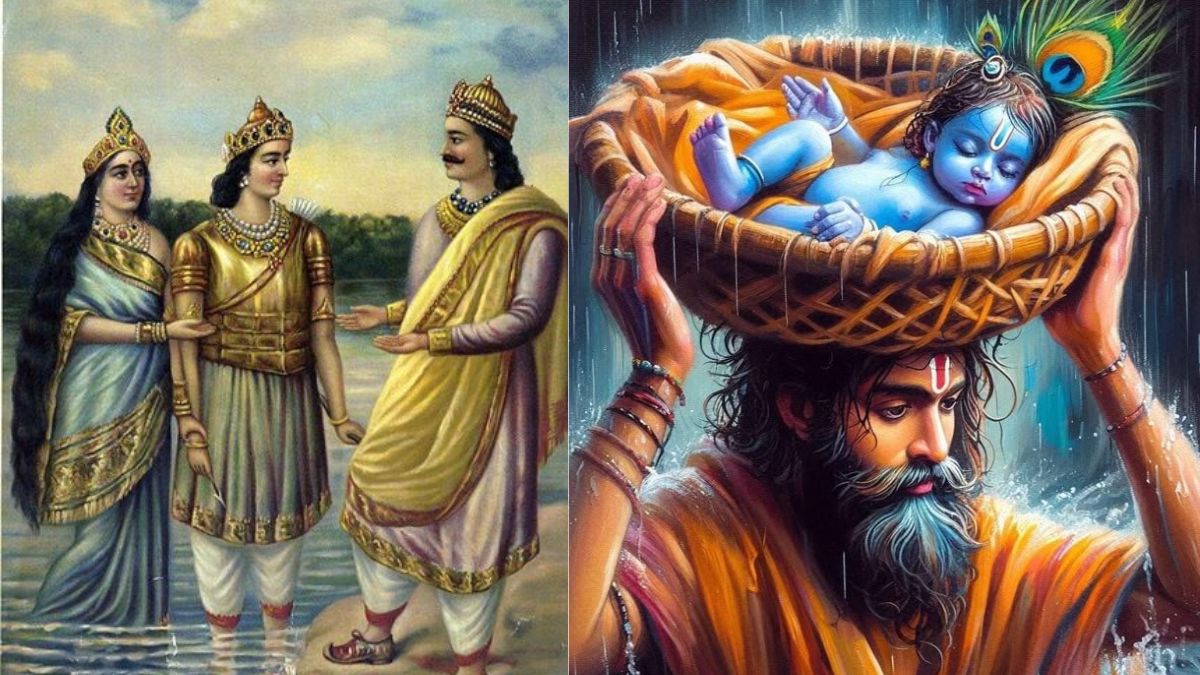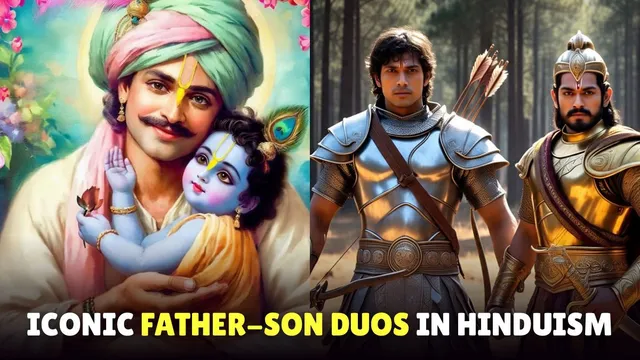- By Kashish Rai
- Fri, 13 Jun 2025 12:27 PM (IST)
- Source:JND
Father’s Day 2025: The special day dedicated to our superheroic dads, Father’s Day is all set to be celebrated on 15th June 2025, Sunday. This significant day is an ode to fatherhood, where children express their gratitude to their beloved fathers for their unconditional support, love and sacrifices. While Father’s Day is a Western cult, the Hindu culture or Sanatan Dharma has always celebrated the contribution of fathers in the lives of children since time immemorial. Numerous Hindu legends beautifully depict the enduring love that fathers have for their children and the steadfast dedication and respect that children show by keeping their fathers' promises.
As Father's Day draws near, let's look at the classic stories of love and sacrifice of the iconic fathers found in the rich Hindu history. These great father-son relationships mentioned in Hindu epic tales never cease to move generations with their enduring bonds and inspiring tales of devotion and guidance.
Father’s Day 2025: 7 Iconic Father-Son Duos in Hindu Legends You Don’t Know Much About
1. Arjun And Abhimanyu
In the Mahabharata, the relationship between Arjun and Abhimanyu is a prime example of bravery and tenacity. Despite only knowing how to enter the Chakravyuh and not how to leave it, Abhimanyu bravely joined the Chakravyuh formation during the Kurukshetra War, carrying on his father's archery skills. Arjun's sorrow over Abhimanyu's untimely death contrasts with his pride in his son's bravery, demonstrating the strength of their relationship and Arjun's unwavering love for his courageous and selfless son.
2. Lord Parashuram And Sage Jamadagini
The relationship between Lord Parshuram and Sage Jamadagni was based on righteousness, discipline and devotion. Despite the dangers, Lord Parshuram followed his father's instructions and faced the Kshatriya rulers. Despite his desire for vengeance following Jamadagni's untimely death at the hands of Kartavirya Arjuna, Parshuram stayed true to his father's teachings and used his abilities to defend the defenceless and enforce the law, demonstrating the strong morals and values that were ingrained in him.
3. King Yayati And Puru
The relationship between King Yayati and his son Puru illustrates the intricacies of desire and ambition. Yayati spends a thousand years engaging in worldly activities, exchanging his advanced age for Puru's youth. But as a result of this experience, Yayati changes profoundly, admitting his errors and ultimately giving up his youth to embrace death, which represents a moving change in his outlook and personality.
ALSO READ: Rath Yatra 2025: Why Lord Jagannath Has No Hands? Know Lesser Known Legend

In Image: Goddess Ganga introducing Bhishma to King Shantanu and Vasudeva Ji taking baby Lord Krishna to Gokul amid the rain and storm. (Image Source: Instagram)
4. King Shantanu And Bhishma
The touching bond between Bhishma and his father, King Shantanu, is depicted in the Mahabharata. Shantanu was able to wed Satyavati because Bhishma's devotion to his father's happiness caused him to step down from the throne and take a vow of celibacy. With its portrayal of Bhishma's selflessness and steadfast devotion to his family, this classic story embodies the principles of sacrifice, accountability, and familial honour that are ingrained in the Hindu legends.
5. Vasudeva And Lord Krishna
While Nand Baba is known to be the father of Krishna, Vasudev Ji was the birth-giving father of the Lord. Deep love and divine direction form the foundation of the relationship between Lord Krishna and his father, Vasudeva. Transporting the baby across the Yamuna River to safety in Gokul, despite the danger and risk to his own life, is a brave act that demonstrates Vasudeva's unwavering dedication to protecting Krishna. Driven by his love for Krishna, this famous moment exemplifies Vasudeva's faith, bravery, and sense of paternal duty.
6. King Dashrath And Lord Rama
The touching bond between King Dashrath and his son Rama is exquisitely portrayed in the Ramayana. In order to keep his word to his third wife Kaikeyi, King Dashrath sends Rama into exile out of paternal love and duty. As an example of loyalty, honour, and devotion to his family's values and his father's wishes, Rama, in turn, demonstrates unwavering respect and obedience by giving up the throne and living in the forest for 14 years.
7. Lord Rama And Luv-Kush
In the Uttara Kanda of the Ramayana, the reunion of Lord Rama with his sons, Luv and Kush, exquisitely illustrates the concepts of sacrifice, forgiveness, love, and duty. The strong ties of family and loyalty are highlighted by Luv and Kush's unwavering devotion to their mother Sita and, after learning of their ancestry, to their father Rama. Lord Rama's paternal love is also evident in his reluctance to part with his sons.

